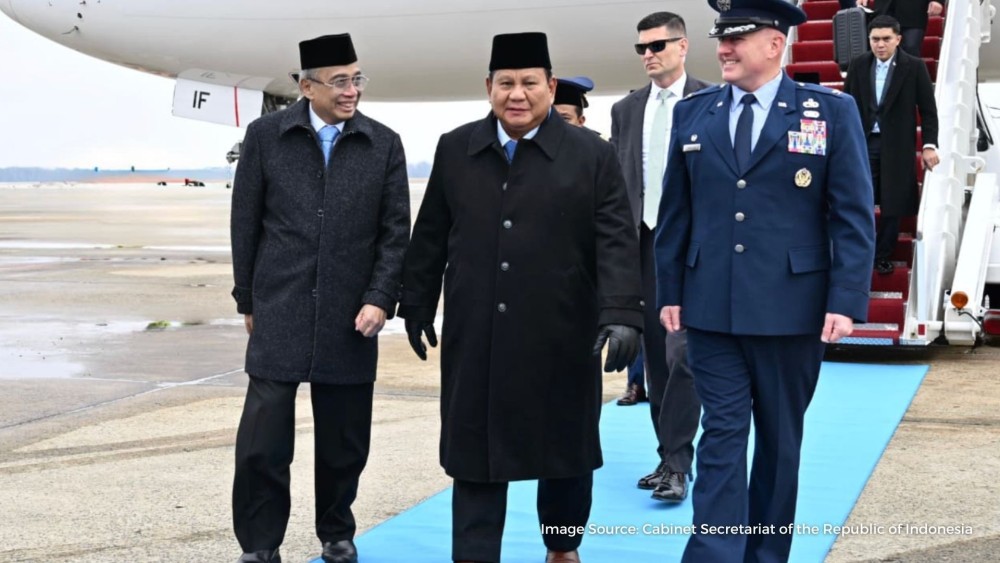Indonesia Hit with 32% Import Tariff Increase by Trump Administration
03 Apr 2025

U.S. President Donald Trump has officially announced import tariff hikes for nearly all countries, including Indonesia.
The tariff increase details were published through the official @whitehouse Instagram account, listing the affected countries. Indonesia is now subject to an import tariff of up to 32%. Several Southeast Asian countries have also been hit with high tariffs. Thailand and Cambodia, for example, face tariffs of 36% and 49%, respectively, while Malaysia and Singapore have lower tariffs at 24% and 10%.
In his speech, Trump stated that higher tariffs are being imposed on dozens of countries that has trade surplus with the United States. Additionally, a baseline 10% tax will be applied to imports from all countries. He described this policy, which he called reciprocal tariffs, as a measure to boost U.S. manufacturing.
"For decades, our country has been looted, pillaged, raped, and plundered by nations near and far," he said, as quoted by the Associated Press.
The Trump administration had previously calculated the percentage of tariffs imposed on U.S. goods by its trading partners. This assessment included base tariffs, trade barriers, and other "unfair" practices such as currency manipulation.
"We will impose tariffs equivalent to about half of what they impose on our country," Trump stated, as reported by CNBC.
Tariffs on some countries are significantly higher than announced. For example, China faces a 34% tariff. However, White House officials noted that this increase will be added to an existing 20% tariff, meaning Chinese imports will effectively be subjected to a total tariff of 54%.
The U.S. Trade Representative’s Annual National Trade Estimate Report highlights the average tariffs imposed by trade partners, as well as non-tariff barriers such as strict food safety regulations, renewable energy requirements, and public procurement rules.
According to the report, Indonesia’s average Most-Favored Nation (MFN) tariff was 8% in 2023. Specifically, MFN tariffs were 8.6% for agricultural products and 7.9% for non-agricultural products. Indonesia has committed 96.3% of its tariff lines under the World Trade Organization (WTO), with an average bound tariff rate of 37.1%.
Over the past decade, Indonesia has progressively increased its applied tariffs on various goods, particularly those competing with domestically produced products. These include electronics, milling machines, chemicals, cosmetics, pharmaceuticals, wine and alcoholic beverages, iron wire and nails, and various agricultural products.
While most non-agricultural goods are bound at 35.5%, certain sectors, such as automobiles, iron, steel, and specific chemicals, have tariffs exceeding this threshold or remain unbound. In the agricultural sector, 99% of products have bound tariffs above 25%, reflecting Indonesia’s protectionist stance in these areas.
In 2024, U.S. stakeholders reportedly raised concerns about Indonesia’s tariffs exceeding WTO commitments for certain information and communication technology (ICT) products. For instance, despite a WTO-bound tariff rate of zero for subheadings under Harmonized System (HS) code 8517—covering switching and routing equipment—Indonesia applies a 10% import duty on these products.
The report also highlights Indonesia’s Minister of Finance Regulation No. 9/2024, which exempts fully assembled (CBU) and partially assembled (CKD) battery electric vehicles from luxury goods sales tax. Additionally, Regulation No. 10/2024 grants import duty exemptions for CBU and CKD electric vehicles, provided that manufacturers build or invest in four-wheeled electric vehicle production facilities in Indonesia.
This article is published in partnership with Katadata
Original article here






